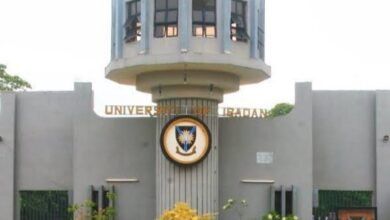5 Key Challenges Facing Nigeria’s Education System

Nigeria’s education system plays a crucial role in shaping the future of its youth and the country as a whole. However, it faces numerous challenges that hinder the development of a robust and equitable educational framework. Here are five key challenges confronting Nigeria’s education system.
1. Inadequate Funding and Resources
One of the most significant challenges facing Nigeria’s education system is inadequate funding. Despite various policies aimed at improving education, budget allocations often fall short of the recommended 15% of the national budget as set by the African Union. This underfunding leads to a lack of essential resources, including textbooks, teaching materials, and infrastructure. Many schools are overcrowded and poorly maintained, which hampers the quality of education and limits students’ learning experiences.
2. Poor Infrastructure
Nigeria’s educational institutions often suffer from inadequate infrastructure. Many schools, especially in rural areas, lack basic facilities such as clean water, electricity, and proper sanitation. The dilapidated state of classrooms and absence of libraries and laboratories further exacerbate the learning environment. This poor infrastructure not only affects students’ academic performance but also discourages attendance, contributing to high dropout rates.
3. Teacher Shortages and Quality
The quality of education in Nigeria is significantly impacted by the shortage of qualified teachers. Many schools are staffed with inadequately trained personnel who lack the necessary skills to deliver effective instruction. Additionally, low salaries and poor working conditions lead to high turnover rates among teachers, further exacerbating the issue. The lack of continuous professional development opportunities also hampers teachers’ ability to keep up with modern teaching methodologies and curricula.
4. Inaccessibility and Inequality
Despite efforts to improve access to education, significant disparities exist in Nigeria’s education system. Rural areas often have fewer educational opportunities compared to urban centers, leading to a significant educational divide. Girls, children with disabilities, and marginalized communities face additional barriers to accessing quality education. Cultural beliefs, poverty, and inadequate infrastructure often hinder these groups from obtaining the education they deserve, perpetuating cycles of inequality.
5. Outdated Curriculum and Skill Mismatch
The curriculum used in Nigeria’s education system is often criticized for being outdated and not aligned with the current job market demands. Many students graduate with knowledge that does not adequately prepare them for employment or entrepreneurship. This skill mismatch contributes to high youth unemployment rates and underemployment in the country. There is a pressing need for a curriculum that emphasizes critical thinking, creativity, technical skills, and vocational training to meet the evolving demands of the economy.
Addressing these challenges is crucial for the future of Nigeria’s education system and the country as a whole. Comprehensive reforms that focus on increasing funding, improving infrastructure, enhancing teacher quality, promoting equitable access, and modernizing the curriculum are essential. By investing in education, Nigeria can empower its youth, foster economic growth, and build a more prosperous future for all citizens.




